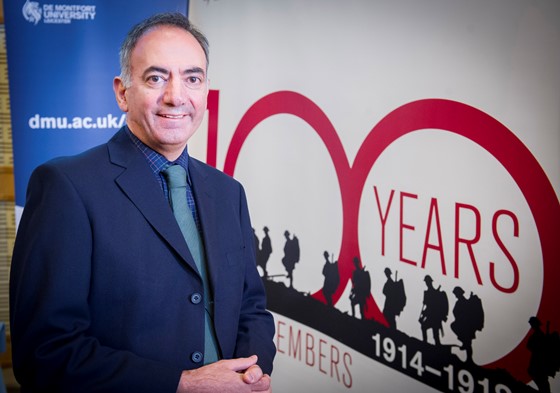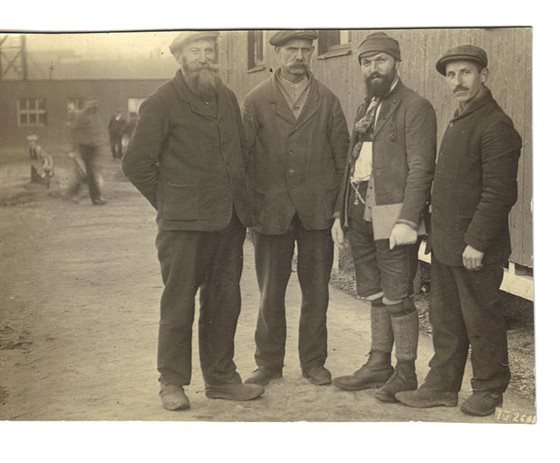A historian from De Montfort University Leicester (DMU) has been featured on a podcast series marking 100 years since the end of the First World War.
Prof Panikos Panayi, Professor of European Relations, is a cultural historian who studied the internment camps created during the Great War, particularly those created in the Isle of Man.

Internments began in August 1914 and increased hugely after the British liner the Lusitania was sunk by a German submarine, killing 1,000 people. This led to a wave of anti-German rioting in Britain.
“I can quite confidently say every German shop in Britain was destroyed,” said Prof Panayi. “In Leicester, one shop was destroyed because it was owned by someone who had been to Germany on holiday.”
Prof Panayi said internment camps were largely a male experience, as only eight women were ever sent to the civilian camps. However, those British women who had married Germans were deported after 1915 which must have been “equally grim” he said. Listen to the podcast here.

Those in the camps have been said by historians to suffer from “barbed wire disease” which, said Prof Panayi, was akin to a mild depressive state. However he said there was also evidence that the camps became their own communities: “they form societies, sport becomes popular, allotments, newspapers published, you even get theatre critics.”
The podcast series was launched following a successful conference at the University of St Andrews called The Home Front, supported by the Scottish Government and the Department of Culture, Media and Sport.
RELATED NEWS:
* Interested in history? Meet Panikos and our tutors at open days
* When mass internment became acceptable
* Historian's First World War study shapes BBC script
Between 1914 to 1918 life during war-time Britain completely changed. Besides altering the ways in which men and women thought and spoke, the four-year conflict saw rationing, inflation and civilians being targeted for the first time when the Germans attacked Britain. The role of women also changed.
Host Sir Hew Strachan, Professor of International Relations said it was an attempt to look at how the First World War affected society, instead of focusing on battles.
The military historian added: “The war required the mobilisation of society as a whole, regardless of class, gender or age. We will highlight what the ‘home front’ – itself a phrase coined during the First World War – achieved in 1914-18, with effects that continue to resonate to this day.”
Prof Panayi’s 1991 book Enemy In Our Midst was the inspiration for a storyline on the BBC’s First World War drama series Home Front, aired on Radio 4.
Posted on Wednesday 24 October 2018